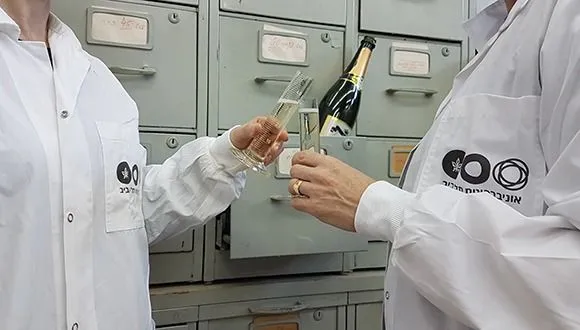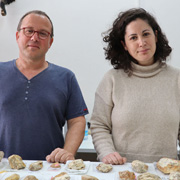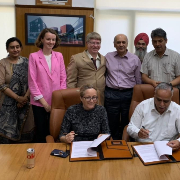A New Approach to International Recruitment
Innovative recruitment strategies for attracting top research talent
According to the 2023 QS World University Rankings, Tel Aviv University (TAU) is 13th in the world for number of citations per faculty. The index measures how highly regarded the research of a university is, meaning TAU does some of the best research in the world.
However, continuing this world-class research relies on a particularly critical element – recruiting enough post-docs and graduate-level researchers to turn funded projects into research findings. Recent articles – including one in Science and one in Nature – reveal that the struggle to recruit post-docs has become an acute problem globally, with approximately three-quarters of researchers reporting challenges with recruiting (according to Science).
Making it Easier for Researchers to Join TAU
TAU is looking at several initiatives to make it easier for international researchers to join its academic community. Recently, the University made the decision that almost all Master of Science (MSc) programs will run in English.
And now, TAU has launched a research opportunities portal. The portal marks the first time TAU has attempted to make available in English all open research positions in one place, thus helping international researchers to find opportunities here more quickly and enabling TAU faculty to recruit from a greater field of potential applicants.
At any given time, there are approximately 3,500 research projects happening across the University. These projects range across the sciences, arts and humanities, and can often be multidisciplinary – some of TAU’s new multidisciplinary research centers focus on areas such as artificial intelligence and data science, health longevity, climate change and combatting pandemics.
It would have been impossible to accomplish the work that TAU has – such as printing the first-ever 3D heart, using geomagnetic fields to verify Biblical accounts of military campaigns, and creating a robot that can smell – without faculty members finding the research support they need. Inevitably, faculty always do find researchers; however, as is the case with universities globally, the process for recruiting can oftentimes be cumbersome.
Evolving from the Traditional Recruitment Process
Traditionally, the recruitment of researchers has proceeded in a piecemeal manner. Faculty either communicate through networks to find potential people, or they advertise on any number of job boards – a good number of them nationally-based, which can be limiting when so many research fields are international in scope and rely on mobility between countries and even continents.
For post-doctoral or graduate researchers, if they don’t hear about positions through their network or on a job board, they’re left with having to directly contact research centers or departments to inquire about potential opportunities. “Many times, when potential PhD students or post-docs are looking for labs, they want a quick way of getting the info, instead of painfully going through departments and schools,” says Prof. Martin Kupiec, the Pasha Gol Chair for Applied Microbiology at TAU.
Helping TAU Support its Research Projects
With TAU receiving approximately $275 million in grants per year, including a significant number of ERC grants (research grants funded by the EU, of which Israel is an associated member), any initiative that makes it easier to recruit international researchers is welcome.
For instance, TAU faculty recently won three ERC Proof of Concept grants, as well as five ERC Consolidator grants – grants awarded to mid-career academics.
Receiving ERC funding can amount to a career-changing opportunity; which may very well be the case for at least one of TAU’s recipients, Prof. Miri Yemini. Yemini is a professor in TAU’s School of Education and won an ERC Consolidator Grant to support her work exploring how students conceive of themselves as global citizens.
Given Israel’s system of funding graduate or post-graduate work within the humanities, Yemini has previously mainly worked with local researchers. However, her current project includes analysis of education systems in Australia, Germany, Italy, the United Kingdom and the United States, and the ERC grant gives her the financial support she needs to hire researchers with direct knowledge of education in each of the countries she is studying.
“I now have to get around 10 people for my new project and from very specific countries,” says Yemini. “The advantages of this new research portal are quite clear and obvious.”
Accessing the new research portal
Anyone may access and submit an application for a research opportunity via the portal. The portal allows researchers to quickly search for a position by faculty, school, position type or keyword search.
Available research positions at all levels will be advertised, and the portal will be updated as new opportunities arise.
TAU’s new research opportunities portal can be accessed here.





